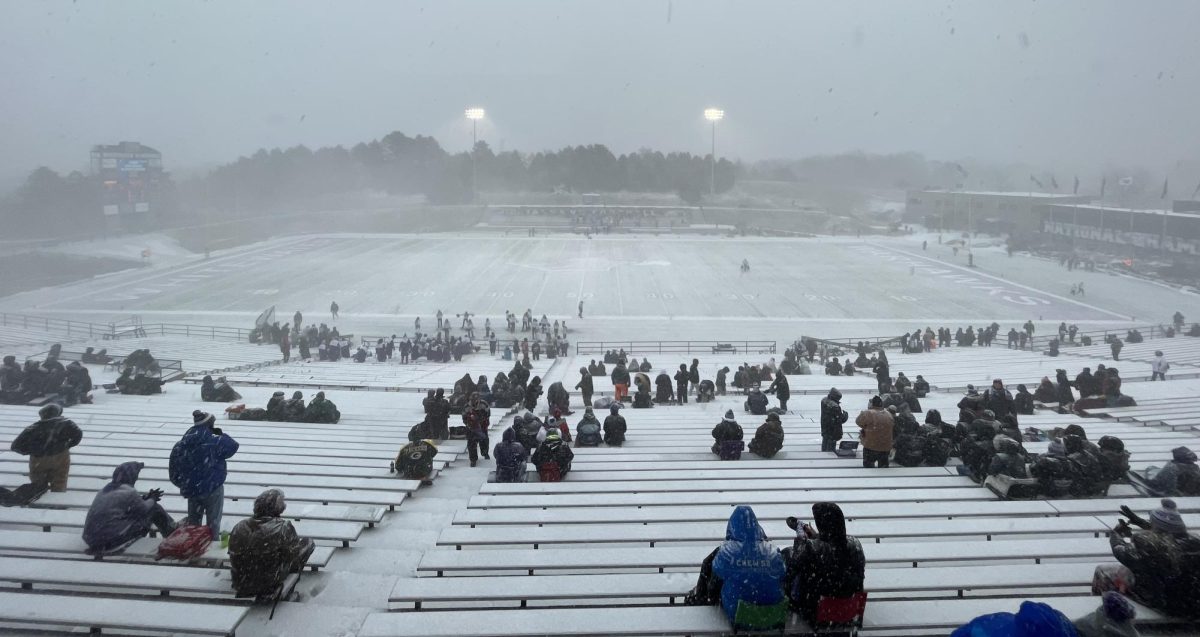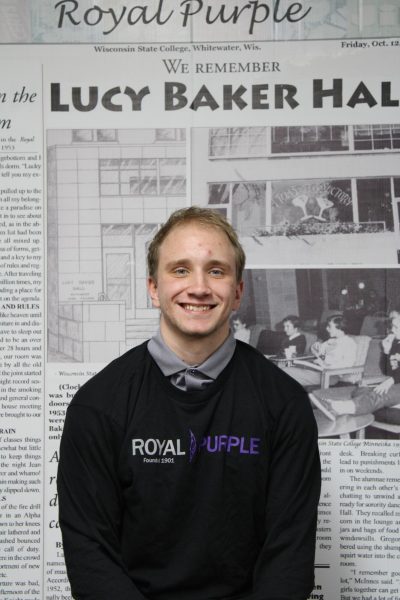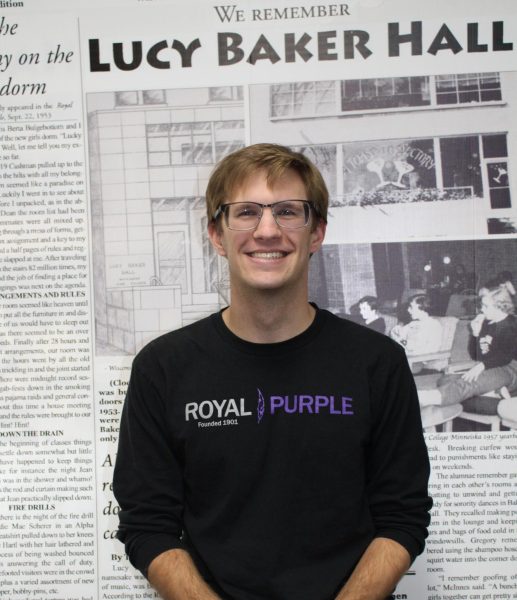For many college students, winter break is the time to recharge before the second semester begins. It’s a time for those to sleep in, binge-watch that Netflix show you haven’t gotten around to yet, and reconnect with family. But for collegiate winter sports athletes, the idea of a “break” is more of a myth than a reality.
At UW-Whitewater, wrestler Ryan Riser, men’s basketball player Carter Capstran, and men’s swimmer Ethan Bergman offer a glimpse into the relentless grind of winter sports.
Wrestlers, including Riser, don’t see much change during the break, at least in terms of the daily grind.
“Our training schedule doesn’t change,” Riser said. “It feels like we can really focus on wrestling more. Without school and the rest of the students around, there are way fewer distractions.”
The focus is necessary, as January brings a critical test in the form of the NWCA National Duals, a competition that pits the Warhawks against the best teams in the nation. Despite its intensity, the midseason push is a favorite time of the year.
“National Duals are a really big deal because it lets us see how we stack up against the toughest teams out there,” Riser said. “It shows the rest of the country that our team is one of the best.”
Senior forward Carter Capstran sees the basketball schedule ramp up even more. Five days off for Christmas feels like a luxury compared to what comes after: two practices a day, strength training and film study.
“The city gets super quiet, so we stick together a lot more as a team,” Capstran said. “In past years, we’ve done more team hangouts during break, and that off-the-court bond helps us play better together.”
It’s not just the workouts that demand attention: playing games without the usual crowds shifts the energy. Going from playing in front of a packed student section to semi-empty bleachers can be challenging.
“It can definitely be tough with fewer students around to cheer us on,” Capstran said. “We learn to bring our own energy, whether it’s a home game or on the road. Staying motivated is key.”
Swimmer Ethan Bergman might seem to have it easier, with a good amount of time to go home for the holidays, but the demands of training don’t let up.
“I am lucky that we are allowed to go home for the holidays,” Bergman said. “But my training schedule doesn’t change; I still workout in the gym and swim for the same amount of time I would if I were at school.”
That consistency is essential in a sport where every fraction of a second counts.
Although Bergman won’t be competing in any events for well over a month, to manage the mental toll, Bergman turns to routines that help him stay centered.
“Meditation and doing yoga in my free time really helps me stay mentally sharp during this off-time,” Bergman said. “Outside of that, seeing my hometown friends and family during the break is important.”
For all three athletes, winter break isn’t a time to take a pause; it’s a proving ground. The wrestling mat, the basketball court and the pool replace family gatherings and vacations. The grind doesn’t relent, but neither does their dedication.
“These weeks are critical for reaching our goals as a team and individually,” Riser said.
Winter athletes like Riser, Capstran and Bergman make countless sacrifices, from missing family traditions to enduring the physical and emotional toll of an intense schedule. Yet, for these Warhawks, those sacrifices are part of what makes the journey so rewarding. The lessons learned and the ability to grind without distractions will stay with them long after the season ends.



